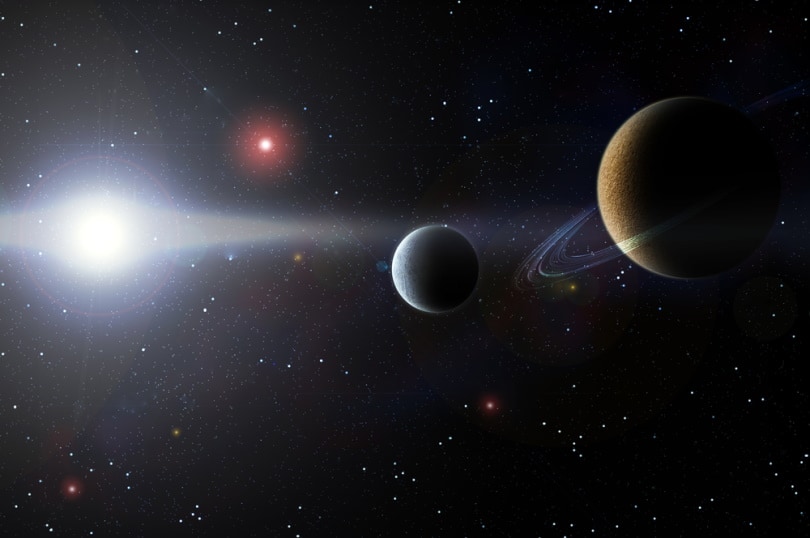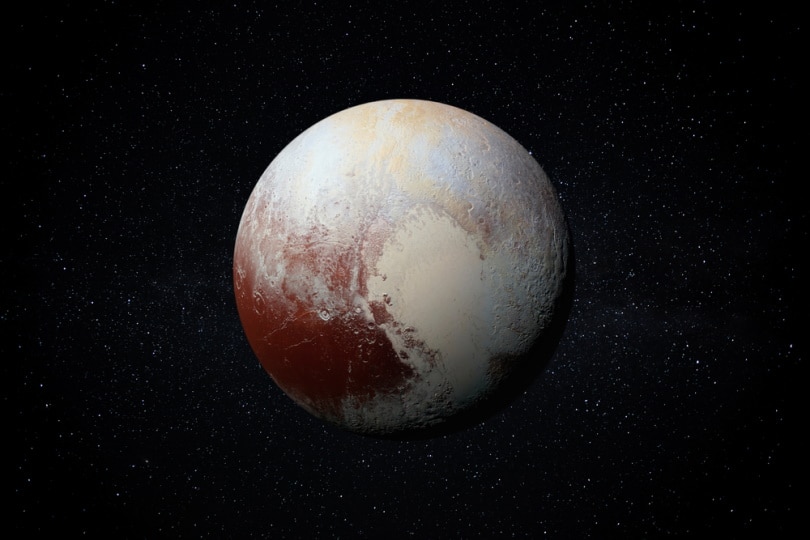Who Named the Planets? How Did They Get Their Names
Last Updated on

When you’re looking at all the different planets in our solar system, it’s only natural to have a few questions about them, such as their names.
Each name references a Roman or Greek god, but why is that the case? The primary reason is that the Romans named five of the eight planets. People were naming the planets before the Romans, but the Roman names stuck and that’s what we use today!
But what five planets did the Romans name, and who named the other three? We dive into all that and more for you here.

Who Named Mercury, Venus, Mars, Saturn, and Jupiter?

The Romans named each planet after one of their gods, and that process had everything to do with what they could see when looking at the planets.
When they looked at Mars, they saw the reddish color of the planet and thus named it after their god of war. They also noticed Mercury’s fast movement, which is why they named it after the messenger of the gods.
Since Venus was the brightest planet that they could see, they named it after their goddess of love and beauty. Jupiter was the fastest moving planet that you could see all night, giving the Romans the impression that it was a god traveling freely throughout the heavens. It only made sense that they would name it after their king of gods.
Saturn was the Roman god of agriculture. While it’s less clear why the Romans picked Saturn, agriculture was an extremely important part of their life, so it makes sense that they would want to see a representation in the sky.
Who Named Uranus and Neptune?

While those are the planets that the Romans discovered, we now know that they aren’t the only planets in the sky. William Herschel discovered Uranus in 1781, and at the time, there was no clear naming convention. Herschel wanted to call the planet, “Georgium Sidus,” after King George III.
Others wanted to name the planet after Herschel because he was the one who discovered the planet. A German astronomer named Johann Bode was the one who wanted to name it Uranus. It was the Latin name of the Greek god Ouranos, the Greek god of the sky. However, it took about 70 years for the name Uranus to gain widespread acceptance.
It wasn’t until 1846 that Urbain Le Verrier made the mathematical calculations that lead to the discovery of Neptune, which were confirmed by a German astronomer named Johann Gottfried Galle. Le Verrier proposed the name Neptune, the Roman name for the Greek god of the sea, Poseidon.
Who Named Earth?
While there’s a rich history surrounding the names of other planets, the truth is that we don’t have a clue who came up with the name “Earth.” We do know that it comes from both English and German words that mean “ground,” but that’s about it.
Who Named Pluto?

While Pluto is no longer considered a planet (it’s a dwarf planet), it was also named after a Roman god, though the naming process was quite different from that of the other planets.
It officially became a planet in 1930, and an 11-year-old schoolgirl named Venetia Burney actually came up with the name. She suggested it to her grandfather over breakfast, and he passed it on to the Lowell Observatory, which adopted it as the official name!
Who Would Name a New Planet?
While it’s unlikely that we’ll discover a new planet any time soon (if ever), what would happen if the theorized Planet Nine (previously known as Planet X) was actually discovered? How would it get its official name?
While it would be unprecedented territory in modern history, it would likely fall under the IAU Executive Committee Working Group Public Naming of Planets and Planetary Satellites. Currently, it works for the naming of exoplanets, or planets orbiting other stars, but there’s a good chance that it would be used to name a new planet in our solar system if needed.
It is likely that a new planet would be named after another Greek or Roman god!


Final Thoughts
Now that you have a better idea of how the planets got their names, you can move on to other burning questions that you might have about our solar system and the universe!
Featured Image Credit: Vadim Sadovski, Shutterstock
About the Author Robert Sparks
Robert’s obsession with all things optical started early in life, when his optician father would bring home prototypes for Robert to play with. Nowadays, Robert is dedicated to helping others find the right optics for their needs. His hobbies include astronomy, astrophysics, and model building. Originally from Newark, NJ, he resides in Santa Fe, New Mexico, where the nighttime skies are filled with glittering stars.
Related Articles:
15 Crucial Facts About Ultraviolet Rays & the Sun
What Constellation Is Spica In? The Interesting Answer!
10 Interesting Leo Constellation Facts, Myths, and FAQs
15 Interesting Pegasus Constellation Facts, Myths, and FAQs
6 Interesting Sagittarius Constellation Facts, Myths, and FAQs in 2024!
What Are Constellations? Where Did They Come From?
8 Interesting Libra Constellation Facts, Myths, and FAQs
What Is Infrared Radiation? Science-Based Facts & FAQ
